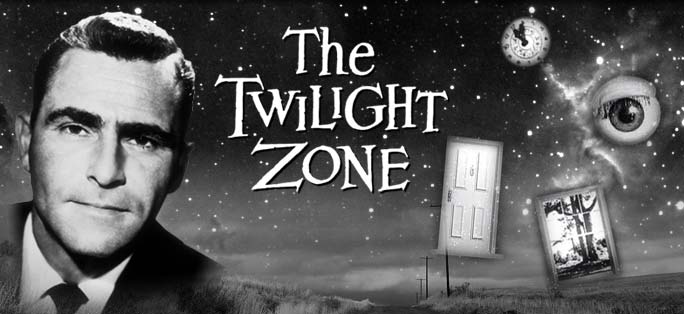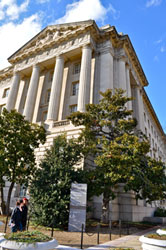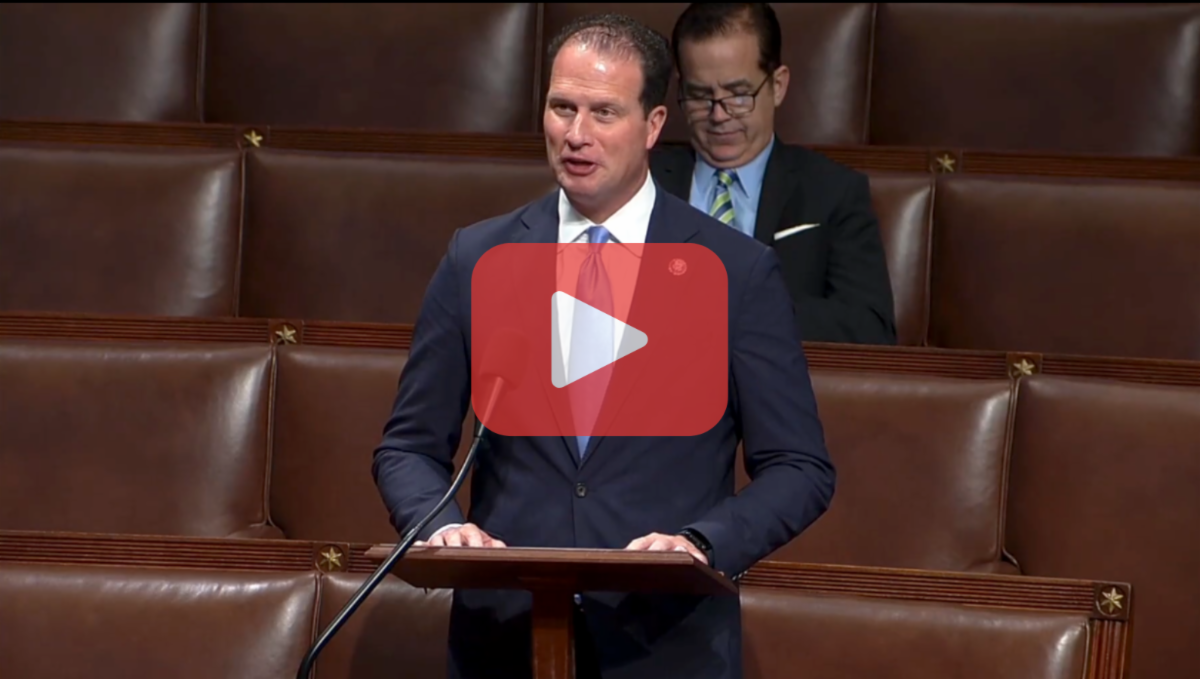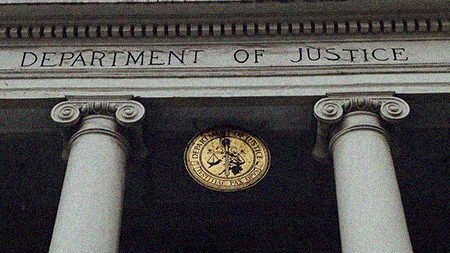Could We Be Living in The Twilight Zone?

Foreshadowing. Alluding to the future. Prophesying. We've all heard of these things before. We've heard foreshadowing through the recording made by former President Reagan when he warned of the dangers of socialized medicine. Or Paul Harvey with his recording of "If I Were the Devil" when he makes some very chilling predictions about the future, and I think we can all agree that some of those things he talks about have definitely come to pass. You know me, though, I like to find unlikely places for inspiration and I think I may have done it with an episode of The Twilight Zone.
Back in 1961, an episode was aired on The Twilight Zone called, "The Obsolete Man" starring Burgess Meredith. At the beginning of the episode, there is an introduction by Rod Serling and it is fantastic. "This is not a new world, it is simply an extension of what began in the old one. It has patterned itself after every dictator who has ever planted a ripping imprint of a boot on the pages of history since the beginning of time....like every superstate that has preceded it, it has one iron rule: logic is an enemy and truth is a menace. Oh, boy.
Let me set the stage for you. Burgess Meredith plays Romney Wordsworth, a librarian and a citizen of the state, as Rod refers to him as in the intro, and in the opening scene we find Romney standing in front of a podium of the state to decide his value as a citizen. The state is to determine whether he is a value to society or if he should be found 'obsolete'. When he is asked for his profession and he says, 'librarian', there are sounds of laughter coming from the court room. With as much disdain as he can muster, the Chancellor repeats, "A librarian?"
So, wait, what? Yes, you read that right. The state was determining whether Romney was worth anything. Stop a minute there and think about where we are as a country today. Obviously, I'm on the conservative side of things, believing that the government should be out of mine and everybody else's business. However, on the liberal Democrat side of things, we have this belief that the government should be involved in everything. Everyday decisions that the lay person makes, from what type of light bulb to use in your home to whether we get to put sprinkles on our donuts. Those are just a few of the examples of what the 'left' hopes to have jurisdiction over in our day to day lives.
Let's move on to the part of the 'hearing' when the 'state' does finally decide that Romney is obsolete. When Romney argues that he's a human being, and that, "no man is obsolete!" The state argues that he's a librarian and therefore is obsolete. The state also argues that there is no God to which Romney replies, "You can't erase God with an edict!" I do remember something about the Democrat party holding its national convention and declaring not once or twice, but three times that they wanted to take the word, 'God' out of their platform. Also, the increasing number of religious liberty court cases that have sprang up over the past four or five years, one involving a WWI war memorial out in the middle of nowhere. After it's having been there for over eighty years, it was all of a sudden deemed 'offensive' by the ACLU and their ilk. A definite infringement on religious liberty.
So, our character Romney Wordsworth has been deemed obsolete. Now what? Well, what else do you think the state would do to someone who they feel has no use? Right, kill them, or in this case, 'liquidate' or 'eliminate' them. In this episode, the state gives Mr. Wordsworth the 'choice' of when and how he should be liquidated; pills, gas or electrocution, to which he replies, "I am a very rich man."
Chancellor: "LOUDER!"
Romney: "I merely said that I was a very rich man. I have such a luxury of choices that I choose the following: to be given an assassin to whom I should tell the method of my execution...I should like to die with an audience."
Chancellor: "Ah, Mr. Wordsworth, that can be arranged! It's not unusual that we televise executions, it has an educative effect on the population."
Romney: "I have no doubt."
Educative effect? So, if your beliefs don't match up with the state, they will have to reeducate you so that you'll fall in line? May I remind you of the case of bakers being forced to bake cakes for a same-sex marriage? The baker was well within his rights to refuse, since all businesses have the right to refuse service to whomever they choose. Anyone remember the 'no shirt, no shoes, no service' sign we used to see on the outside of doors of Stop and Go convenience stores? And yes, I realize I'm dating myself here, but I think it's a valid point. These regulations and limitations that the government tries to force onto us have nothing to do with what party we affiliate ourselves with and I'll show you how that plays out next in this particular episode.
Fast forward a bit to the scene of Romney in his room waiting for his time of death. He has requested the presence of the Chancellor, and the Chancellor is a bit skeptical as to why he was chosen and he even mentions the probability of Mr. Wordsworth's desire to get revenge. As their time plays out together, it gives Romney a chance to question the methods of the state, and when pressed, the Chancellor exposes the state for what it really is when he says this,
Chancellor: "On the contrary, history teaches us a great deal. We have predecessors who had the beginnings of the right idea."
Romney: "Hitler."
Chancellor: "Hitler, of course."
Romney: "Stalin."
Chancellor: "Stalin, too, but their error was not one of excess, their error was not going far enough. Too many undesirables were left around and undesirables form a core of resistance. Old people who clutch at the past and won't accept the future. The sick, the maimed, the deformed, they fasten onto the healthy body and damage it. So we eliminate them. And people like yourself, they can perform no useful function for the state and so we put an end to them."
I would like to stop a minute there and point out that we may have already seen this take place in the form of tea party activists being targeted by the IRS. The tea party would be the undesirables in this instance who have formed a core of resistance and obviously, the IRS would be the state entity. We could go back even further than that to the Boston tea party, the original tea party to show a core of resistance had formed. I think we could all agree that King George would consider that first group of patriots as undesirables.
At one point before his imminent demise, Romney reveals the method of liquidation he's chosen. A bomb is to go off at midnight, but he won't be alone. Chancellor learns that he'll be present during the liquidation, and he is none too happy. However, Romney retrieves his Bible from its hiding place, after all, it's against the rules of the state to have a Bible, remember, since they've determined there isn't a God. He opens it and begins reading from Psalm 23 as the Chancellor makes himself comfortably uncomfortable on the couch. Romney continues to read scripture after scripture while Chancellor looks on and smokes cigarette after cigarette as the time ticks down.
With one minute remaining, at 11:59 PM, the Chancellor begins to weep and beg, "Please, please, in the name of God, let me out! Let me out, let me out!" Romney replies, "Yes, Chancellor, in the name of God, I will let you out." Shortly after the Chancellor escapes, an explosion erupts from Romney's room and we know he has been liquidated.
The closing scene finds the Chancellor on the other side of the podium. Remember, Romney's liquidation was televised, so the state saw how Chancellor wept and begged for his life. Therefore, the state placed him in the obsolete category as well. We see how easily and readily the state turned on its own instrument when any display of weakness was shown. You could even say that regardless of party affiliation, when the state is pressed, they will turn on their own.








